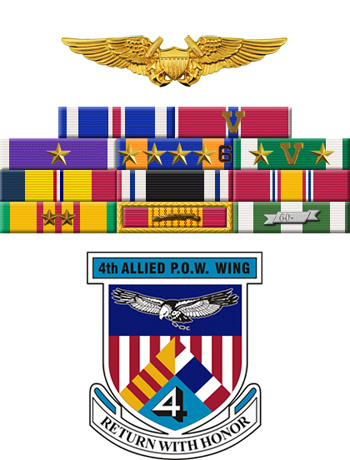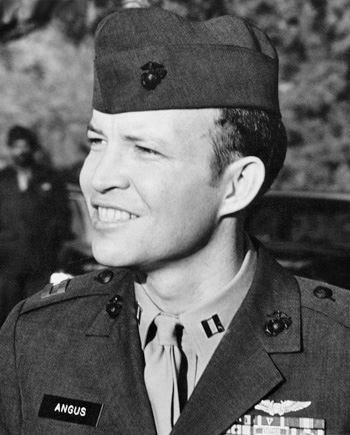
|
William K. "Bill" Angus |
 |
|||
| Rank, Service | ||||
Captain O-3, U.S. Marine Corps |
||||
| Veteran of: | ||||
|
||||
| Tribute: | ||||
Bill Angus was born on December 15, 1945, in Denver, Colorado. He enlisted in the U.S. Marine Corps Reserve on February 1, 1967, and completed the Marine Platoon Leader Class/OCS during the summer of 1967. He was commissioned a 2d Lt and went on active duty on June 7, 1968. Lt Angus completed The Basic School at MCB Quantico, Virginia, in December 1968, and then attended Naval Flight Officer School, receiving his NFO Wings in October 1969. He next completed A-6 Intruder Navigator/Bombardier training before serving with VMA(AW)-332 at MCAS Cherry Point, North Carolina, from June 1970 to April 1971. His next assignment was with VMA(AW)-224 at MCAS Cherry Point from April to December 1971, and then deployed aboard the aircraft carrier USS Coral Sea (CVA-43) from December 1971 until he was forced to eject over North Vietnam and was taken as a Prisoner of War on June 11, 1972. After spending 291 days in captivity, Capt Angus was released during Operation Homecoming on March 28, 1973. He was briefly hospitalized to recover from his injuries at Camp Pendleton, California, and then left active duty on January 5, 1974, remaining in the inactive reserve until January 29, 1979. Bill Angus died on July 13, 2017, and was buried at Arlington National Cemetery. |
||||
|
||||

